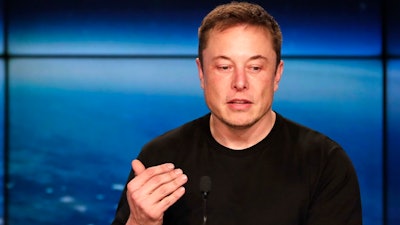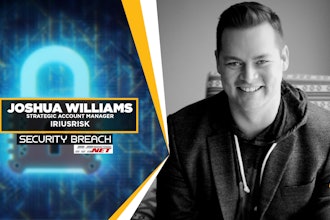
DOVER, Del. (AP) — Attorneys for Tesla Inc. asked a Delaware judge Thursday to dismiss shareholders' complaints over a compensation plan that could net CEO Elon Musk more than $50 billion over the next decade.
A shareholder lawsuit filed last June alleges that Musk and Tesla's board of directors breached their fiduciary duties to the company and its stockholders, granting unjust enrichment to Musk and wasting corporate assets.
The lawsuit said the pay plan is not just excessive but unnecessary, and that it should be subject to court review because it was negotiated by a compensation committee and approved by a board whose members had conflicts because of personal and professional ties to Musk.
"Those numbers were negotiated by conflicted people," shareholder attorney David Tejtel argued Thursday, referring to the staggering sums involved in Musk's compensation package.
Under the plan, Musk could reap billions if the electric car and solar panel maker hits ambitious market capitalization and operational milestones. For each of 12 milestones the company achieves, Musk, who already owns more than 20% of Tesla, would get stock equal to 1% of outstanding shares at the time of the grant.
Each milestone includes growing Tesla's market capitalization by $50 billion and meeting aggressive revenue and pretax profit growth targets.
"He's nowhere near getting paid a nickel as we speak," noted Vice Chancellor Joseph Slights III.
Musk would receive the full benefit of the pay plan, $55.8 billion, only if he leads Tesla to a market capitalization of $650 billion and unprecedented revenues and earnings within a decade.
"If he doesn't generate outsized returns ... he gets nothing," Tesla attorney William Savitt said of the all-or-nothing package. "It creates massively ambitious targets."
After 15 years in business, Tesla has yet to turn a full-year net profit. Last month, the company reported a first-quarter loss of $702 million, more than double what analysts had expected and ranking among the company's worst quarters in the past two years.
Savitt argued that the lawsuit fails to adequately allege that Musk's new compensation package constitutes waste or is unfair to stockholders, who themselves would see significant benefits of their investment if the milestones are reached.
Just because the pay proposal is unusual and on a grand scale doesn't make it unfair, said Savitt, who noted that at a special shareholder meeting last year it received the support of more than 70% of shares of common stock not owned by Musk or his brother, Kimbal Musk.
Tejtel, the plaintiff's attorney, noted that the proposal did not earn the support of the majority of all of Tesla's outstanding disinterested shares, but only a majority of shares represented at the meeting, either in person or by proxy. The failure to gain a majority of all outstanding shares means the deal is subject to court review, he argued.
Under Delaware's "business judgment" rule, deference is typically given to a corporate board's decision-making unless there is evidence that directors had conflicts or acted in bad faith.
If a plaintiff is able to overcome the business judgment rule's presumption, the board's action is then subject to an "entire fairness" analysis," which shifts the burden to the corporation to show that the deal involved both fair dealing and fair price.
"It seems that what we're talking about here is scale," said Slights, who told attorneys he would try to issue a decision promptly.
Shares in Tesla, based in Palo Alto, California, fell $2.86, or 1.17%, to close Thursday at $241.98.






















